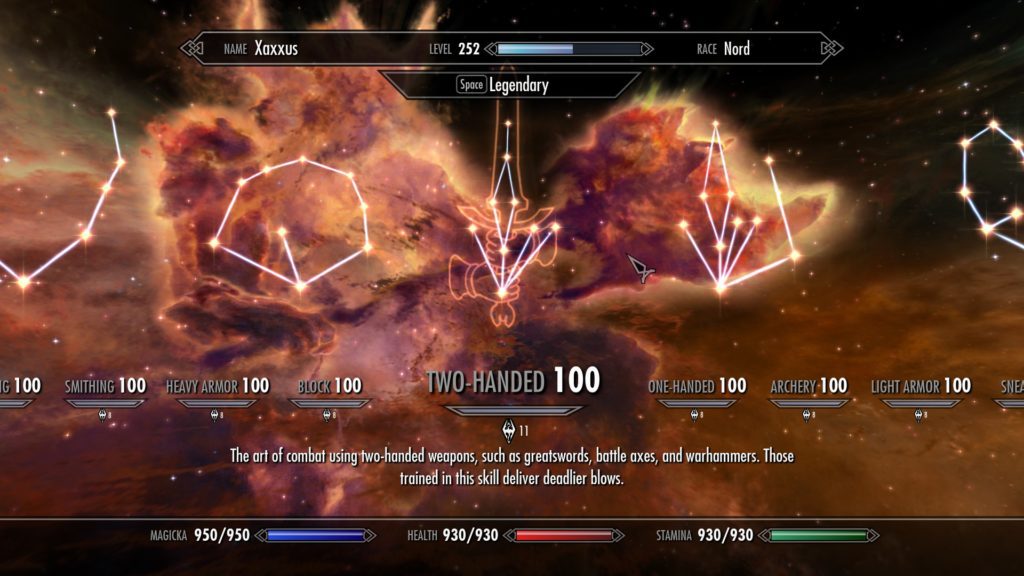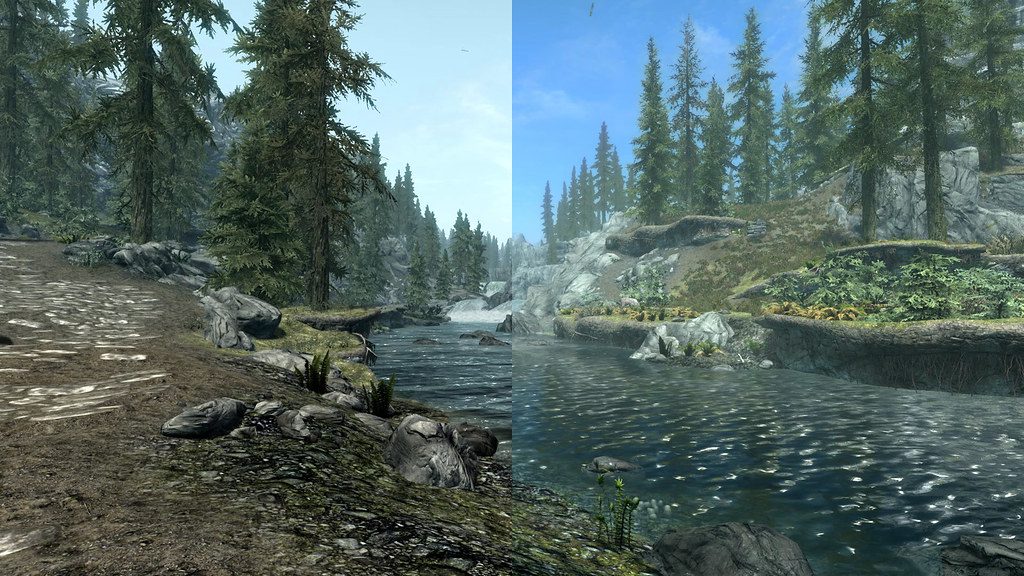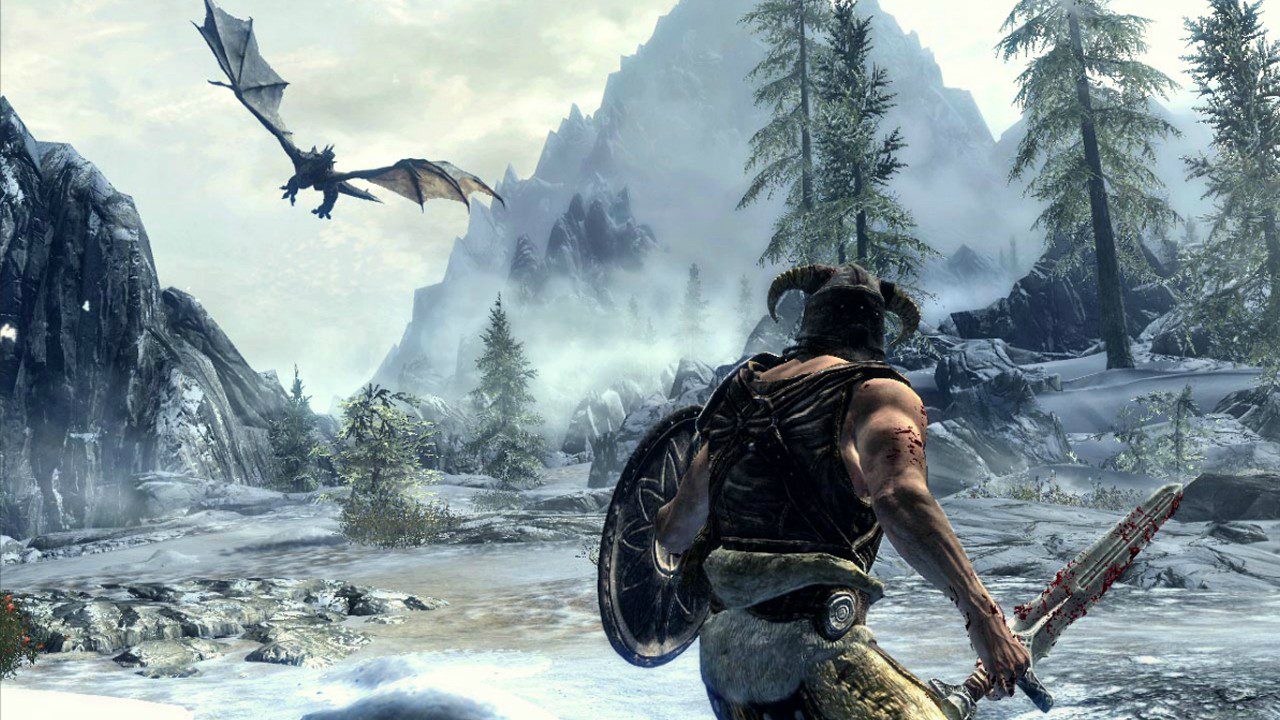The Elder Scrolls V: Skyrim, released in 2011 by Bethesda Game Studios, is an open-world action role-playing game (RPG) that has left a profound impact on the gaming industry. From its expansive open world to its modding community, Skyrim has set the standard for modern RPGs and influenced game developers for years to come. In this article, we will delve into the various aspects of Skyrim that have helped shape the gaming industry.

Expansive Open-World Design
One of the most defining features of Skyrim is its massive open-world environment. The game offers a vast and diverse landscape for players to explore, filled with numerous quests, dungeons, and secrets waiting to be discovered. Skyrim’s open-world design has inspired many game developers to create similarly expansive and detailed environments, giving players more freedom to explore and interact with the game world at their own pace.
Radiant AI and Quest Systems
Skyrim introduced the Radiant AI and Radiant Story systems, which dynamically generate quests and character behaviors based on the player’s actions and choices. This groundbreaking approach to quest design has influenced many other games, leading to more dynamic and engaging gameplay experiences. By providing players with a seemingly endless stream of quests and interactions tailored to their choices, Skyrim has set a new standard for open-world RPGs and encouraged developers to create more immersive and reactive game worlds.
Impact on Modding Culture
The Elder Scrolls series has always had a strong modding community, and Skyrim was no exception. Bethesda released the Creation Kit, a set of modding tools, to enable players to modify and expand upon the game. As a result, Skyrim’s modding community has created thousands of mods that enhance graphics, add new content, and even completely overhaul the game’s mechanics. The popularity and success of Skyrim mods have encouraged other developers to support modding in their games, leading to a more vibrant and creative gaming ecosystem.

Accessible RPG Mechanics
Skyrim’s streamlined RPG mechanics made the game more accessible to a wider audience without sacrificing depth. By simplifying the leveling system, skill trees, and inventory management, Skyrim appealed to both hardcore RPG fans and newcomers alike. This approach to game design has influenced other developers to strike a balance between depth and accessibility, making RPGs more approachable to a broader range of players.
Influence on Game Mechanics and Systems
Skyrim’s gameplay mechanics, such as crafting, combat, and character progression, have also influenced other games in the industry. The game’s robust crafting system, which allows players to create and upgrade weapons, armor, and potions, has inspired similar systems in other RPGs and open-world games. Additionally, Skyrim’s real-time combat mechanics that blend melee, archery, and magic have served as a template for many action RPGs that followed. The flexible character progression system, which rewards players for using skills rather than forcing them into specific classes, has also been adopted by various game developers to give players more freedom in customizing their playstyle.
Immersive Storytelling and World-Building
Skyrim’s rich lore and engaging storytelling set a new benchmark for world-building in video games. The game weaves a compelling narrative through a combination of main quests, side quests, and environmental storytelling. This attention to detail and depth of narrative has inspired other developers to focus on crafting immersive game worlds with intricate backstories and memorable characters.
Cross-Platform Success and Longevity
Skyrim’s immense popularity and success across multiple platforms have also influenced the gaming industry. Initially released on PC, Xbox 360, and PlayStation 3, Skyrim has since been ported to various other platforms, including the Nintendo Switch, PlayStation 4, Xbox One, and even VR devices. This cross-platform approach has allowed the game to reach a broader audience and demonstrated the potential for long-lasting, high-quality games to thrive on various platforms. As a result, many developers have prioritized creating games with long-term appeal and broad accessibility.
Impact on Game Marketing and Hype
Skyrim’s marketing campaign was highly effective in generating anticipation and excitement for the game before its release. This hype was instrumental in driving record-breaking sales, with over 3.5 million copies sold within the first 48 hours. The success of Skyrim’s marketing campaign has influenced how other developers approach game promotion, with many adopting similar tactics to generate excitement and anticipation for their titles.

Pioneering the “Game as a Service” Model
While not the first game to do so, Skyrim played a significant role in popularizing the “game as a service” model, where developers continually update and expand upon a game long after its initial release. Through the addition of DLC, mod support, and various updates, Skyrim has remained relevant and engaging for players years after its initial release. This approach has influenced many game developers to adopt a similar model, focusing on creating a long-term, evolving experience for players rather than just a one-time playthrough.
Skyrim Leaves Us With A Legacy
The Elder Scrolls V: Skyrim has left a lasting impact on the gaming industry in numerous ways. Its innovative game mechanics, immersive storytelling, and groundbreaking approach to player freedom and choice have set a new standard for open-world RPGs. The game’s influence can be seen in countless titles released in the decade since its launch, and its legacy will undoubtedly continue to inspire and shape the future of the industry. Skyrim’s enduring popularity serves as a testament to the power of compelling game design and the potential for video games to create unforgettable experiences that resonate with players for years to come.






I agree with most points, but releasing DLC for a game is not making it a “games as a service” and if you do define it as such then Skyrim wasn’t even close to the first. DLC has been sold for games going back decades before Skyrim. I remember DLC in titles like Baldur’s Gate over a decade before Skyrim. Even in Bethesda, earlier games like Morrowind had bite sized mini DLC and full expansions. It’s odd and you’re write about how impactful it was, but I still liked Oblivion and Morrowind better and I’m not sure why. Maybe it was the drab color scheme, maybe it was the sameness of the environment, maybe it didn’t push the envelope as far as the leaps between previous games, but if I could only take one ES with me to a desert island, it would probably be Oblivion despite it’s massive flaws.
Thank you for sharing your thoughts and providing valuable feedback on the article. You’re right that DLC has been around for quite some time, and I appreciate your insight on the distinction between DLC and “games as a service.” It’s important to consider that Skyrim was one of the earlier games that popularized the concept of providing substantial post-release content, contributing to the modern understanding of “games as a service.” However, I understand that the term might not be entirely accurate in this context, and I appreciate the correction.
As for your preference for Oblivion and Morrowind, that’s completely valid. Each Elder Scrolls game has its unique characteristics, and different aspects of each game may appeal more to individual players. I could write a similar article about each of those games as well (maybe I will). The color scheme, environment, and overall game design can definitely influence one’s experience and personal preferences.
It’s fascinating to hear different perspectives and preferences regarding the Elder Scrolls series, as it shows the depth and impact these games have had on players. Once again, thank you for your feedback, and I hope our article sparked some interesting discussions and reflections on the influential role Skyrim has played in the gaming industry.